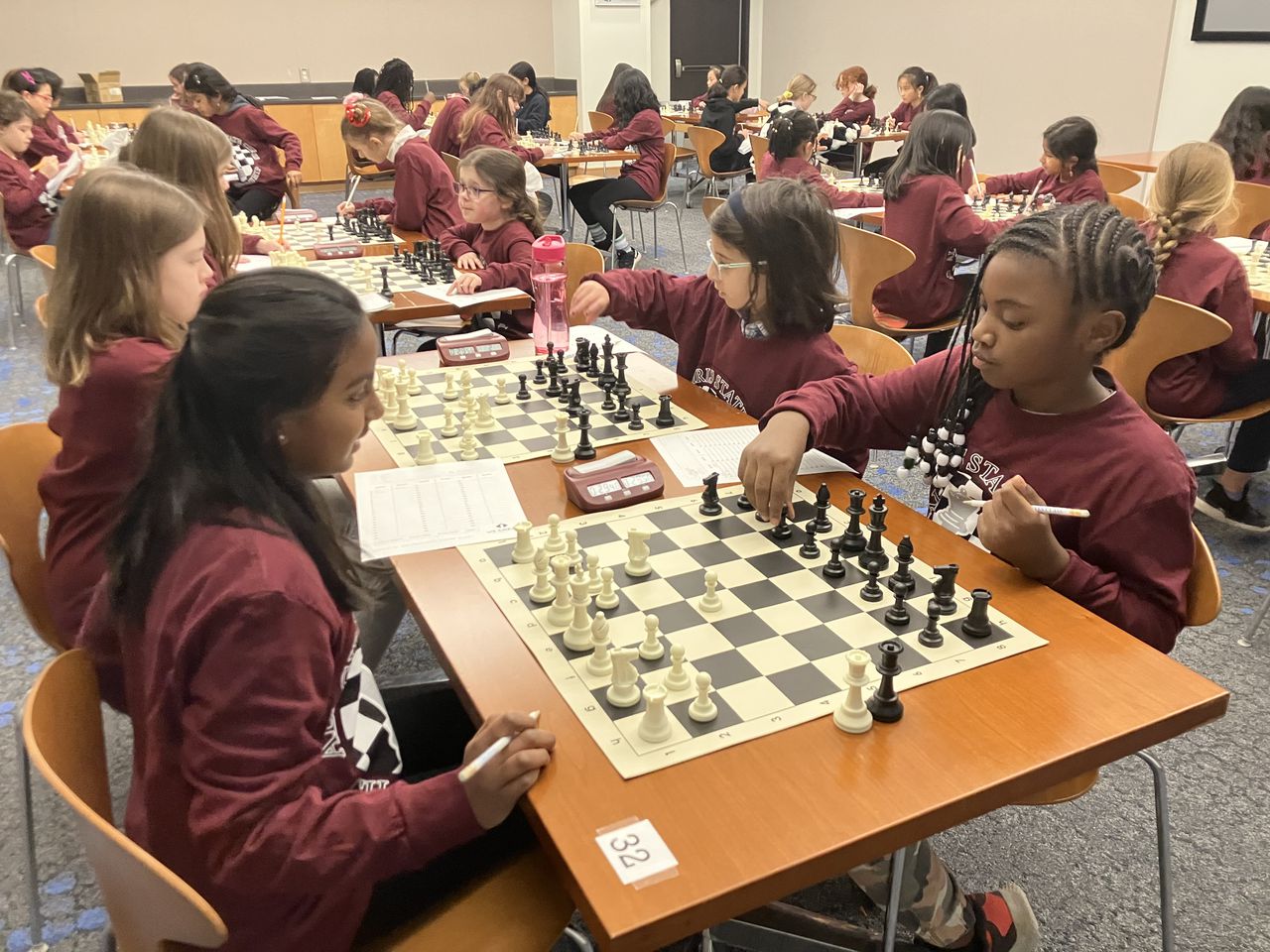‘You have to think’ and Alabama’s girl chess players really can
A record 66 Alabama girls gathered in Huntsville Saturday for the girls’ state championship in one the world’s oldest games.
It’s chess, it started as early as the 1400′s and it’s hot in Alabama in the 2020′s, said Ranae Bartlett, president of the Madison City Chess League. To show how hot, she said Florida had 64 girls competing in its championship this year and Tennessee’s turnout was in the 30s.
The 2020 TV drama “The Queen’s Gambit” gets a lot of credit for the game’s current high profile, Bartlett said, and so does the game’s online growth during the pandemic. That was a challenging time for chess, Bartlett said. Last year’s tournament was on a football field to allow for social distancing.
But the pandemic is past and girls and their parents filled the big lobby of host venue HudsonAlpha Institute for Biotechnology. In the game rooms, the girls were seriously hunched over the boards and at the same time getting what adults say are the benefits of chess for young people: developing analytical skills, strengthening memory, helping each other and learning to handle their emotions.
“It’s incredible what it does for students,” said Madison school teacher Beth Mattingly. “Logical thinking, math, strategy. You have to think about each piece. You have to think beyond the present moment.” You can learn chess in kindergarten, Mattingly said, and it gives lifelong benefits.
“I really like chess because it uses my brain,” said 11-year-old Sophia Jerez of Madison who started playing in the third grade. “It was a little harder than I thought. I thought I would catch up pretty quickly but I didn’t as quickly as I thought. But I got the hang of it.”
Jerez’s father taught her the game and she said, “I can beat him easily now.”
Bartlett said just hanging out with other girls may be the tournament’s biggest attraction. But they’re also learning things like how to rally after a loss. That happens in a five-round tournament. “This is the worst part as a parent,” Scott Newberry said outside a competition room. “Waiting for them to come out running or in tears.”
But they usually bounce back quickly, Newberry said. “And the key point is they have to go back in for the next game.”
Rachel Ehman is a junior in high school who learned the game in second grade. For her, it’s mostly social and fun. “If an introvert knows chess, you can talk to them by playing chess,” she said.
Asked for some chess advice, Ehman said, “Avoid the fool’s mate.” That’s a two-move checkmate, she said, also known as “the fastest way to lose.”
